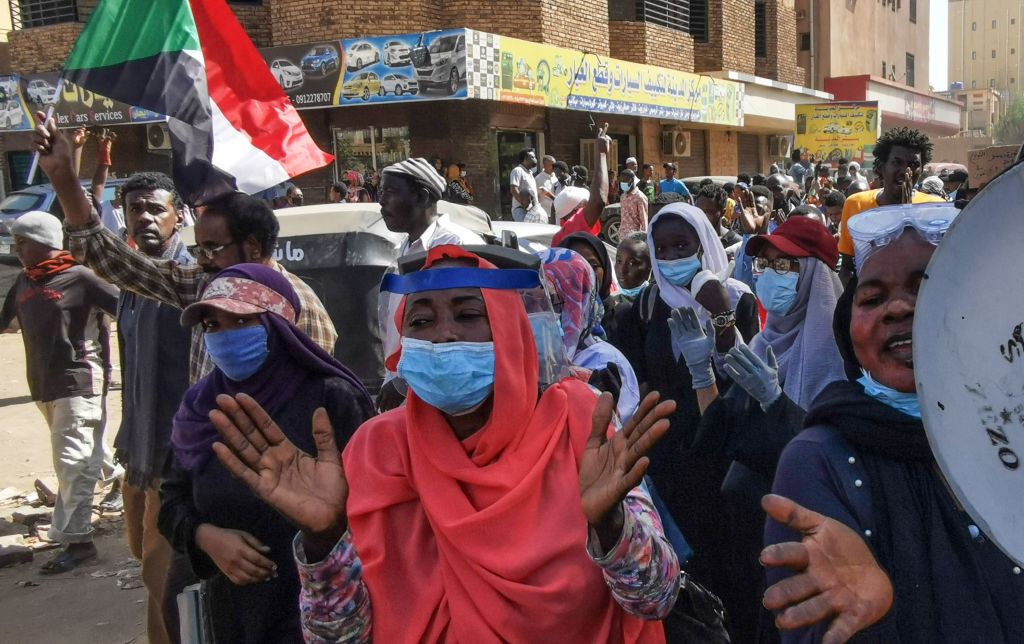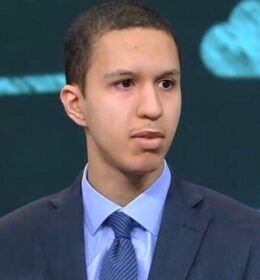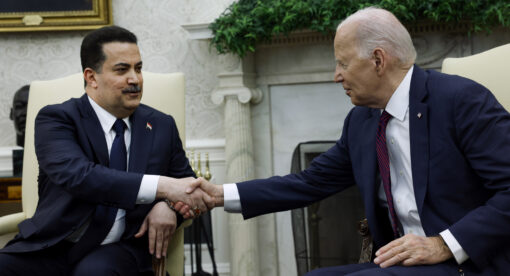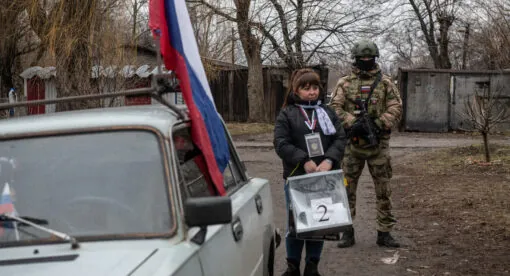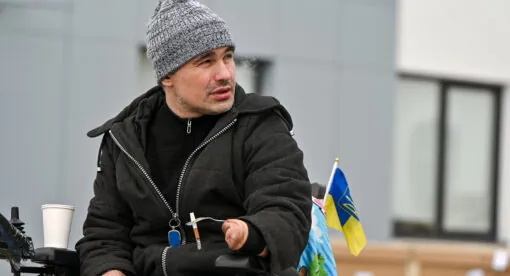Sudanese Prime Minister Abdalla Hamdok’s Jan. 2 resignation leaves the military in full control of the country’s affairs and decreases the chances of establishing democratic rule in the foreseeable future. The United States and its partners, which have an interest in reducing Khartoum’s reliance on Russia, can help influence events by increasing their engagement with Sudan and using leverage such as aid.
Hamdok’s resignation comes after an Oct. 25, 2021, military coup led by Gen. Abdul Fatah al-Burhan, in which the military dissolved the government and detained several figures, including Hamdok himself, who was put under house arrest. Two weeks later, Burhan established a new Sovereign Council with himself at the helm. However, on Nov. 21, Hamdok was reinstated amid pressure from the U.S. and other countries. Hamdok signed a 14-point agreement with Burhan, which included a pledge by the army to release political detainees.
The Sudanese public, which had been demonstrating against the coup, was unsatisfied with the deal. Thousands took to the streets to protest what they saw as military rule with a charade of a civilian government. Protesters want to see a government that lays out a roadmap to end the country’s political turmoil, address its economic challenges, and re-establish stability.
Increased Divisions Amid Deteriorating Circumstances
The military likely hoped Hamdok’s presence as a figurehead would help defuse public anger that forced the ouster of President Omar al-Bashir in 2019. While Burhan vowed to “uproot the regime,” the military’s rule over the country has been authoritarian, too. It did not take long after Bashir’s removal from power for the military to relaunch his feared National Intelligence and Security Service, which is known today as the General Intelligence Service. The military also wants foreign aid to bolster the country’s fragile economy and help Sudan clear its $60 billion in debt. Since the international community would not be willing to support a military regime, keeping Hamdok as prime minister would have served as a cover to achieve this objective.
Hamdok’s resignation suggests he failed to gain significant public support. Hamdok himself is not a charismatic figure, which suited the military – a more popular prime minister would have been more likely to stand up to them. Hamdok reportedly stepped down because the military went back on November’s “non-interference” agreement, a deal that already weakened the role of prime minister. Through his resignation, Hamdok may have been trying to rehabilitate his public image amid the public anger at his deal with Burhan.
Moreover, there are inner divisions within the Forces of Freedom and Change (FFC), the civilian umbrella alliance that led demonstrations against Bashir and chose Hamdok as its nominee for prime minister after Bashir was ousted. Although it has been three months since Hamdok left office, the FFC has not agreed yet on who would replace him. In fact, several Arab states have been reportedly pushing for Hamdok’s return.
The FFC consists of several political parties that have ideological differences. Jihad Mashamoun, a political analyst on Sudanese affairs, said in an interview that the main division within the alliance is between parties that used to be part of the Sudan Call – al-Umma and Baathists – and the Communist party, along with some trade unions and civil associations. Mashamoun explained that some parties who agreed to the military partnership in 2019 have lost confidence in the military after the 2021 coup. Other parties, he said, have been trying to defuse tensions with the military or lack the sufficient backing to win future elections. Furthermore, Mashamoun said that some parties, such as al-Umma, are also divided within themselves. There is also disagreement within the FFC regarding Sudan’s foreign relations. Some seek to distance the country from foreign alliances. Meanwhile, others believe Sudan’s fragile domestic situation – and the role that aid from countries like Saudi Arabia and the United Arab Emirates plays – means that such alliances are necessary. Unless the FFC addresses its inner divisions, it is likely to become less effective over time.
Hamdok’s resignation leaves the military solely in control of the country’s affairs, but Burhan and those around him appear to have no clear strategy for Sudan’s future besides consolidating their own power. This is a step backward because the Sudanese remain unwilling to accept military rule. If the situation escalates, it is likely to further destabilize Sudan.
The international community can be proactive in pressuring Sudan toward democracy. “If we are serious about seeing a political transformation in Sudan towards civilian-led, democratic rule then we need to be actively engaged in weakening the military’s hold on power while at the same time supporting those efforts of the pro-democracy movement with training and technical expertise so that they can be better equipped to resist the military’s efforts to weaken and divide them,” Cameron Hudson, a nonresident senior fellow at the Atlantic Council’s Africa Center and a former chief of staff to the U.S. special envoy to Sudan, said in an email interview. “Put simply, international actors must remain engaged at a high level to send signals to all parties about what transition benchmarks they are looking to have met and what more they can do to support those efforts.”
Exacerbating tensions in the country are the military’s brutal and deadly crackdowns on protests, which have not abated since Bashir’s ouster. The international community can stress to the military that it could receive punishments, such as sanctions, if it does not change its behavior regarding protests. As the military responded positively to the pressures regarding reinstating Hamdok to power, the international community can try using its leverage to change the army’s behavior, especially given the fact that Burhan and his allies need foreign aid to bolster Sudan’s economy.
As the U.N. attempts to find an understanding between the civilians and military through negotiations, the FFC needs to address its inner divisions to better position itself for eventual talks. The international community should push to heal the intra-FFC rift, which would help it facilitate the occurrence of civilian leadership of the country.
However, there could be concerns regarding the extent to which the military would positively engage in the U.N. process. “The international community can help by imposing targeting sanctions on the military to force them to take the U.N. negotiations seriously in terms of handing power over to the civilian opposition,” Mashamoun said. “There also needs to be an immediate review that can happen in exchange for the military handing over power.”
The complicated relationship between Sudan’s civilian government and military can endure if both sides compromise and are willing to work together to improve Sudan’s circumstances at a time in which the country is in desperate need of collective effort. Some experts are already claiming Sudan is now a “failed state.” While this description can be debatable at this stage, it may end up being a fact if the political turmoil continues. The international community may well be able to help by using its leverage to encourage and support a transformation, but it cannot force a change; the international community has other priorities, such as the Ukraine crisis, and this is a domestic matter that only the Sudanese can resolve. If any democratic rule is to be established, it would occur over the long term because the current complexities suggest there will be no “quick fix” to the crisis.
Abdulaziz Kilani is a British-Arab writer who focuses on the Middle East and North Africa. Kilani’s work has been published in various outlets, including Middle East Eye, Responsible Statecraft, Gulf International Forum (GIF) and Inside Arabia. Follow him on Twitter at @AZ_Kilani.
The views expressed in this article are those of the author and not an official policy or position of the New Lines Institute.

